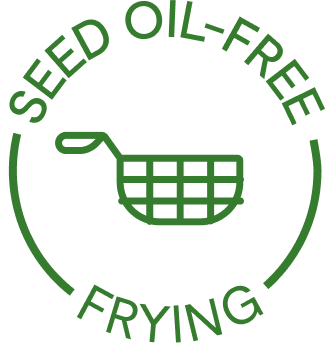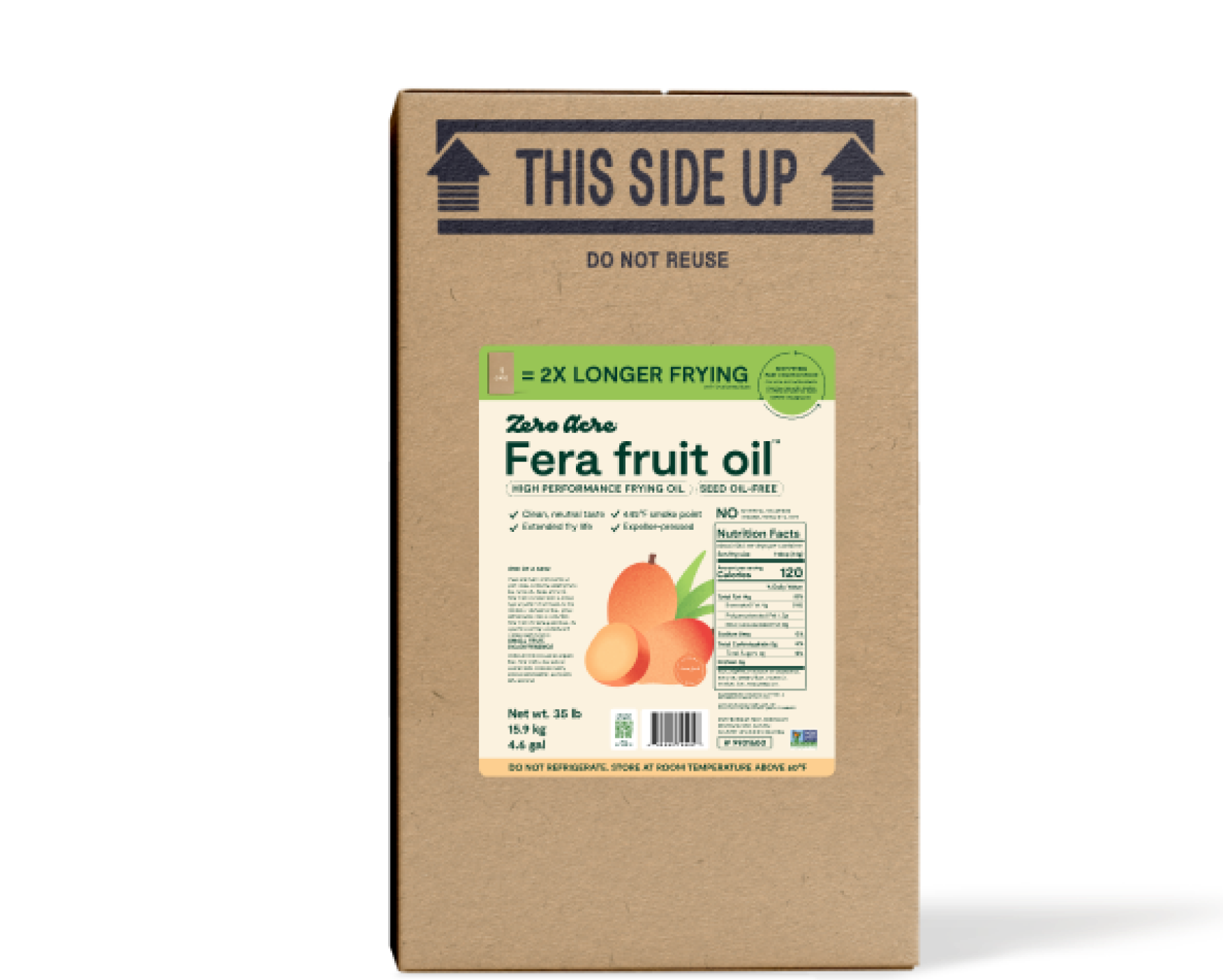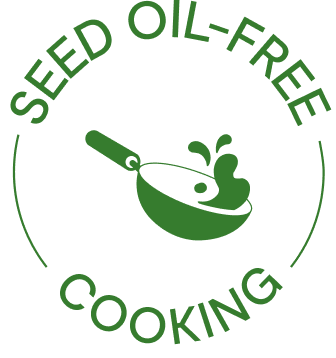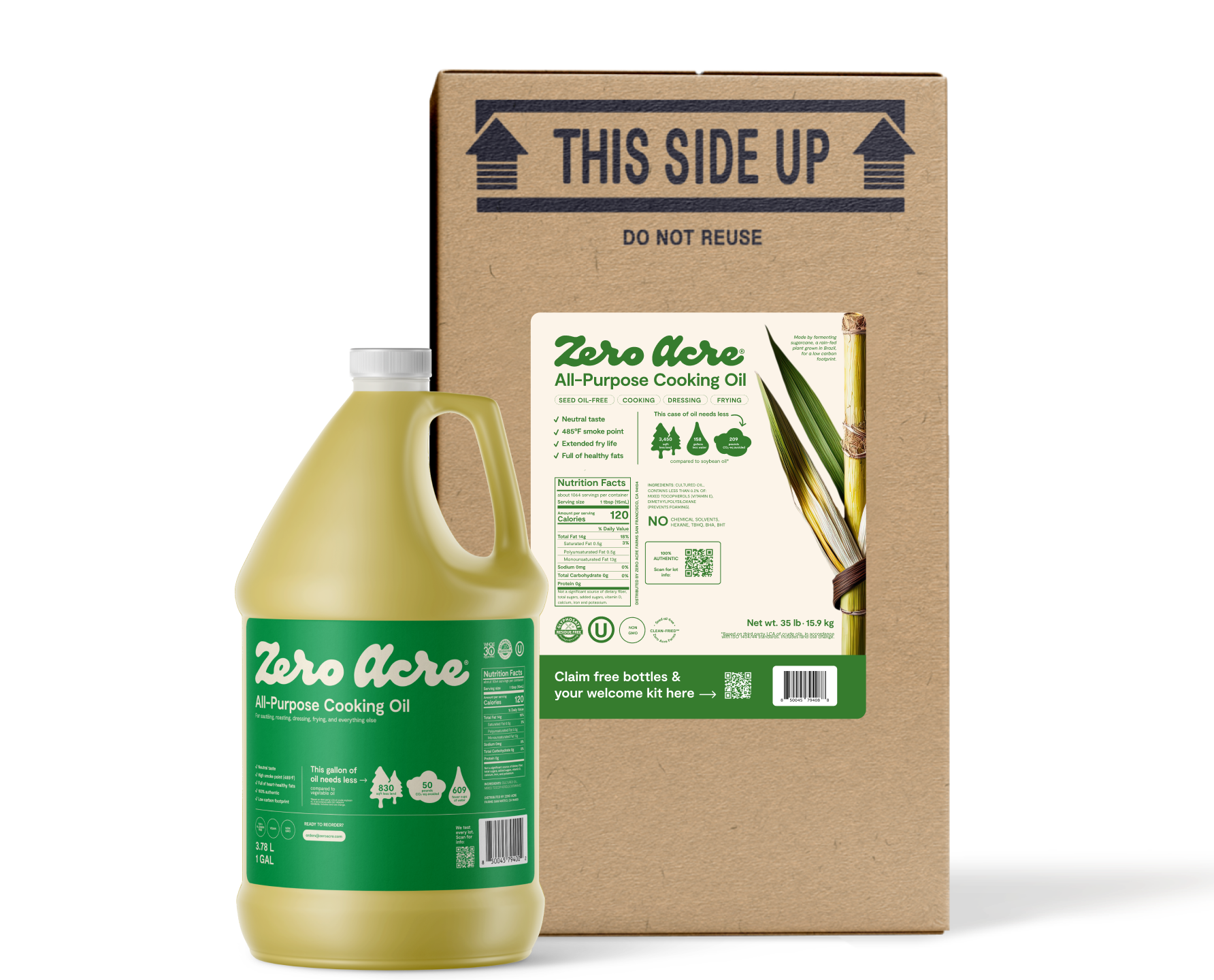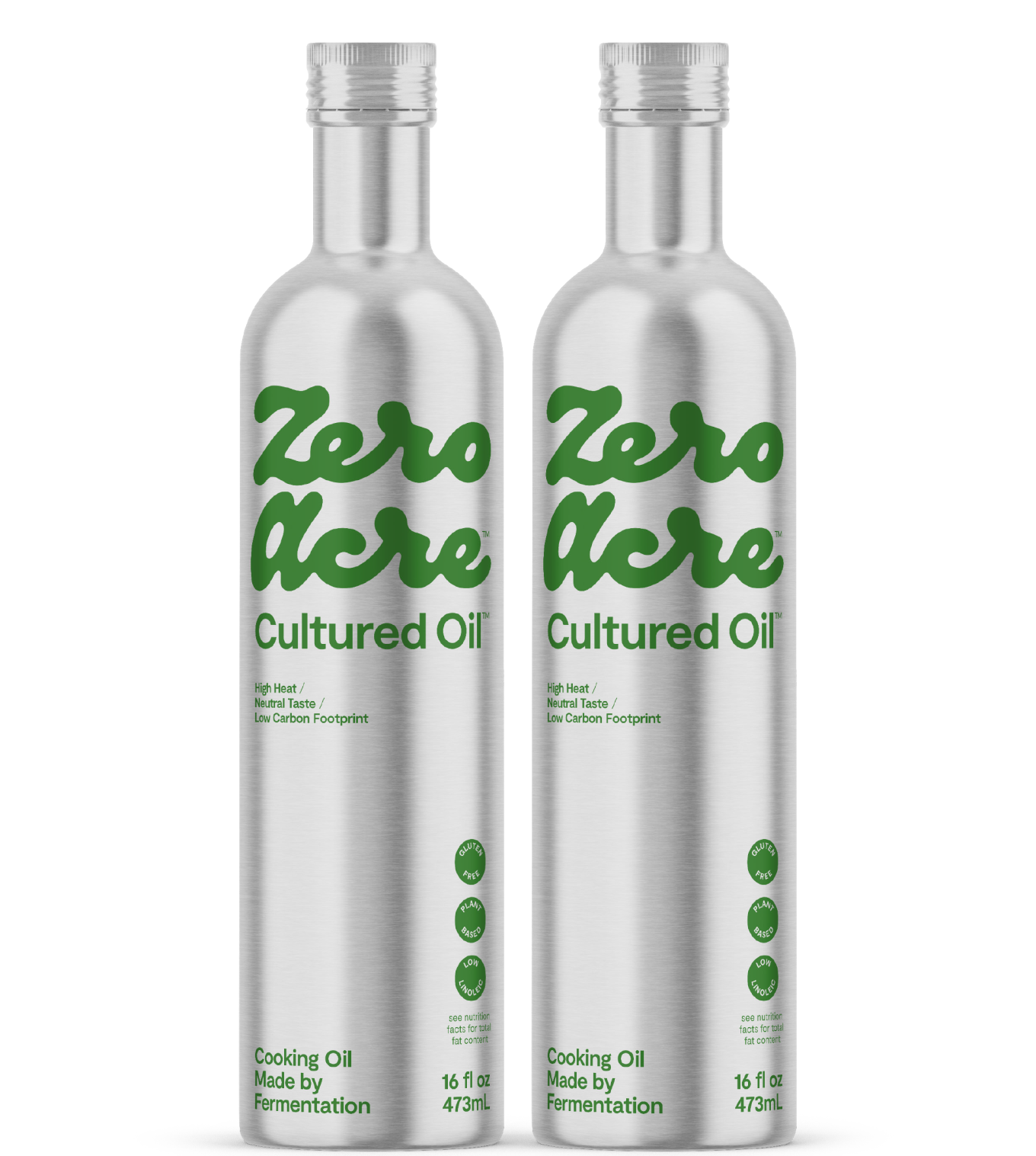WRITTEN BY: Corey Nelson
Article at a Glance
Sunflower oil is cheap, readily available, and has a neutral flavor.
It's a common cooking oil and ingredient in processed junk foods because of its low cost and availability at scale.
Sunflower oil and other industrial seed oils are responsible for a massive increase in the intake of omega-6 fats, which are linked with inflammation, obesity, heart disease, cancer, and other health issues.
Introduction
Sunflower oil is one of the most common cooking oils and processed food ingredients. And like most seed oils, sunflower oil is high in unstable, inflammatory omega-6 fats.
In this guide, you'll learn about the history of sunflower oil, the reasons for its widespread use, the health issues associated with consuming seed oils, and healthier alternatives.
What Is Sunflower Oil?
Sunflower oil is a common, inexpensive cooking oil and processed food ingredient made from the seeds of the common sunflower (Helianthus annuus).
Home cooks and restaurants often use sunflower oil for sauteing and frying because of its low cost, easy availability, and relatively neutral flavor.
It's also used in packaged snack foods and premade meals because fats raise the palatability of foods like potato chips, activating brain reward centers and increasing snack consumption [*].
Sunflowers grown for sunflower oil extraction are a major global food crop, accounting for over 20% of vegetable oils produced worldwide today [*].
How Is Sunflower Oil Made?
In the past, as early as 1590, Indigenous people of the Americas and others made sunflower oil in small batches by grinding and pressing sunflower seeds to extract the oil [*]. This unrefined or virgin form of sunflower oil was used in cooking, as a balm for hair and skin, and as a medicinal ingredient.
The first commercial sunflower oil production occurred in Russia in the early 19th century [*] and set the stage for the widespread consumption of sunflower oil. As production became economically important in Europe and throughout the world in the 19th and 20th centuries, farmers and inventors used selective breeding techniques and technological innovations to increase the oil yield from seeds.
Modern, industrial sunflower oil extraction uses the following steps to extract the maximum amount of oil from seeds [*]:
Seeds are cleaned, de-hulled, and ground into a coarse meal by machines.
The sunflower meal is heated and fed into an extremely strong mechanical press to extract as much oil as possible.
The remaining cake (pressed meal) is treated with a volatile solvent, usually hexane, to dissolve and extract the remaining oil. The solvent evaporates or is boiled out of the meal and is collected for reuse.
The extracted sunflower oil is refined to remove color, odor, and bitterness. It's heated, then mixed with sodium hydroxide or sodium carbonate, which forms a soap mixture containing impurities. The remaining oil is separated from the soap using a centrifuge.
Finally, the oil is treated with steam or acid and de-gummed, bleached, filtered, and deodorized using extremely high heat (440-2485°F), then packaged for transport or sale [*].
Is Sunflower Oil a Seed Oil?
Yes, sunflower oil is an industrial seed oil. Like other seed oils, it's a major source of inflammatory omega-6 fats in modern diets. Previously, humans obtained these fatty acids in tiny amounts from whole foods, but omega-6 intake increased 10-fold in the U.S. and elsewhere during the 20th century due to the widespread use of seed oils.
Sunflower Oil Nutrition Facts
According to the USDA, one tablespoon (14 grams) of sunflower oil contains approximately [*]:
124 calories (kcal)
0 grams of protein
14 grams of total fat
0 grams of carbs
0 grams of fiber
6 milligrams of vitamin E (alpha-tocopherol).
Sunflower oil is high in polyunsaturated omega-6 fats and low in monounsaturated and saturated fats. Per tablespoon, it provides:
9.2 grams of omega-6 polyunsaturated fats
2.7 grams of monounsaturated fats, and
1.4 grams of saturated fats
Sunflower oil is naturally high in vitamin E, providing approximately 40% of the recommended daily allowance (RDA) for men and women 14 years of age or older in one tablespoon [*].
Unfortunately, evidence suggests that the manufacturing process of highly-refined sunflower oil may destroy or degrade the vitamin E content [*,*]. Therefore, while cold-pressed sunflower oil is a good source of vitamin E, most commercially available sunflower oil used for cooking oil and in packaged, processed foods likely doesn't contain much vitamin E.
Sunflower Oil Smoke Point and Heat Stability
The smoke point of refined sunflower oil is approximately 412-450°F [*]. While sunflower oil has a moderate smoke point, this number doesn't tell the full story — the oil actually isn’t very stable when heated and can produce harmful byproducts during high-heat cooking, even when it's not smoking.
An oil's smoke point is the temperature at which it begins to visibly smoke when heated. Chefs and home cooks often use smoke point information to decide whether a given cooking oil is appropriate for sauteing, pan-frying, or deep-frying foods.
In general, a smoke point represents the absolute upper limit of the usable temperature range of an oil. In other words, the smoke point of an oil is the maximum usable temperature for cooking, and you should avoid heating it past that point whenever possible.
However, a relatively high smoke point doesn't mean an oil is stable when heated. You might think that oils with higher smoke points would be better for high-heat cooking but this often isn't the case.
The thermal stability or heat stability is how slowly or quickly a cooking oil breaks down when heated [*]. And in fact, it doesn't relate directly to an oil's smoke point, but rather to the fatty acid composition of an oil.
Of the common types of fatty acids, saturated fats are the most heat-stable, followed by monounsaturated fats, while polyunsaturated fats are the least heat-stable [*].
Sunflower oil and other seed oils are high in unstable polyunsaturated fats, primarily omega-6 linoleic acid, that oxidize or break down when heated (including during manufacturing and cooking), forming unhealthy oxidation byproducts such as acrylamides, toxic aldehydes, hydroxylinoleate, free radicals, and trans fats [*,*].
Is Sunflower Oil Safe for Frying?
Sunflower seed oil is a poor choice for deep-frying and other high-heat cooking because it's highly unstable when heated. As a result, it forms harmful byproducts, especially when reheated multiple times — a common practice in restaurants, where frying oil may be reused hundreds of times before being discarded [*].
Among these harmful byproducts are physiologically toxic unsaturated aldehydes, which have been linked to various health issues including inflammation, heart disease, and cancer. In a third-party analysis that compared the production of aldehydes in various cooking oils during pan frying, sunflower oil was exposed to 356ºF alongside other oils. The analysis focused on monitoring toxic aldehyde production over time.

After 90 minutes of heating, sunflower oil, which is high in linoleic acid, was found to produce about three times more PUFA-derived aldehydes compared to moderate-linoleic avocado oil. Sunflower oil also generated about 20 times more PUFA-derived aldehydes compared to low-linoleic Zero Acre oil.
Building on the previous analysis, consuming foods fried in sunflower oil and other seed oils is associated with higher risk of cancer, heart disease, and death from all causes [*].
Healthier frying oils you can use at home include Zero Acre oil, avocado oil, and coconut oil. You can further reduce any negative health effects by discarding the oil after high-heat cooking instead of reusing it.
Is Sunflower Oil Healthy?
Sunflower oil and other seed oils are very high in omega-6 linoleic acid. While humans require small amounts (around 1-2% of daily calories) of this polyunsaturated fat, excessive intakes of linoleic acid from cooking oils and processed foods are linked with health problems [*].
Studies show that eating too much linoleic acid may contribute to:
Dementia or cognitive impairment [*]
Considering that plenty of readily-available healthy fats and oils exist, which are lower in omega-6s and higher in heart-healthy monounsaturated fats, there is no health benefit to consuming seed oils like sunflower oil.
Is Sunflower Oil Inflammatory?
Sunflower contains approximately 65-70% omega-6 linoleic acid, which is inflammatory when consumed in excess [*]. Humans evolved to consume low levels of omega-6 fats, but as seed oils like sunflower oil became popular in the 20th century, the average dietary intake increased 10-fold [*,*].
Your body incorporates omega-6 fats from sunflower oil and other seed oils into cellular membranes, adipose tissue, and breast milk [*]. As a result, excess linoleic acid bioaccumulates (builds up) in cells over time, resulting in instability and inflammation at the cellular level [*,*,*].
Over-consuming inflammatory omega-6 linoleic acid also creates an imbalance between omega-6 and omega-3 fats in your body and depletes anti-inflammatory omega-3s in tissues [*].
Researchers think that humans naturally evolved to consume an equal ratio of these fats, but today, many people now consume 20 times higher levels of omega-6 than omega-3 fats [*].
Sunflower Oil Sustainability
Ukraine and Russia are, by far, the largest producers of sunflower oil, but sunflower oil is produced in many other countries such as Argentina, China, Turkey, Hungary and the United States [*].
Sunflower oil shares a similarly low carbon footprint with Zero Acre oil, setting them apart from most vegetable oils in terms of their impact on greenhouse gas emissions. However, sunflower oil's land and water footprint is about 10 times larger than Zero Acre oil.
In fact, sunflower oil is the least efficient among all major food crops globally (with at least 10 million tonnes produced) [*]. Vegetable oils, including sunflower oil, make up three of the top five most land-intensive crops, meaning they require a significant amount of land just to produce one kilogram of food, with some needing 3 to 50 times more land per kilogram compared to most other crops [*,*,*].

According to the National Sunflower Association, sunflowers are primarily grown for their oil content [*]. However, the starchy leftovers from pressing sunflower seeds are commonly used in feedlot animal diets [*].
As a result, sunflower oil production may be propagating less sustainable animal agriculture. Reducing the demand for sunflower oil could lead to fewer readily available starchy meals, potentially encouraging a shift towards more sustainable, regenerative agricultural practices.
Sunflower Oil Substitutes
Using vegetable oil alternatives to replace sunflower oil and other seed oils is an easy way to reduce your inflammatory omega-6 intake, including:
Avocado oil
Coconut oil
Extra-virgin olive oil
Replacing sunflower oil with oils that are suitable for deep-frying is also wise, as high-omega-6 seed oils are inherently unstable and create harmful oxidation byproducts during high-heat cooking.
When you're shopping for healthy fats and oils, look for products that are low in omega-6 fats, environmentally friendly, and with properties that work for your intended application (such as a high smoke point and good heat stability for cooking oils).
The Takeaway
Sunflower oil is a common cooking oil and processed food ingredient because it's inexpensive and readily available. Unfortunately, it's high in inflammatory omega-6 fats and unstable when heated.
Consuming sunflower oil and other seed oils is linked with higher rates of obesity, heart disease, some types of cancers, dementia, and chronic pain [*,*,*,*,*,*,*,*,*,*,*,*,*,*].
Reducing your omega-6 linoleic acid intake by eliminating seed oils is a smart move for better health. Sunflower oil and other seed oils like soybean oil are found in most processed foods and restaurant meals, so you'll need to get savvy at reading labels and cooking meals at home with healthier cooking oils.
Zero Acre oil is a new type of cooking and culinary oil made through fermentation. It's high in heart-healthy monounsaturated fats, stable for high-heat cooking, and exceptionally environmentally friendly.

Is Grapeseed Oil Healthy? Nutrition Facts, Studies, and Alternatives
Grapeseed oil is sometimes touted as a healthy cooking oil, but it's important to keep in mind that like other seed oils, it's high in omega-6 linoleic acid which may be problematic for your health.

Are Seed Oils Toxic? The Latest Research Suggests Yes
Seed oils never underwent safety testing for premarket approval. Here, we examine the disturbing toxicity and safety data that have come to light recently.

Is Canola Oil Bad for You?
Canola oil is a seed oil derived from the rapeseed plant, and it contains problematic levels of the inflammatory omega-6 fat linoleic acid.

